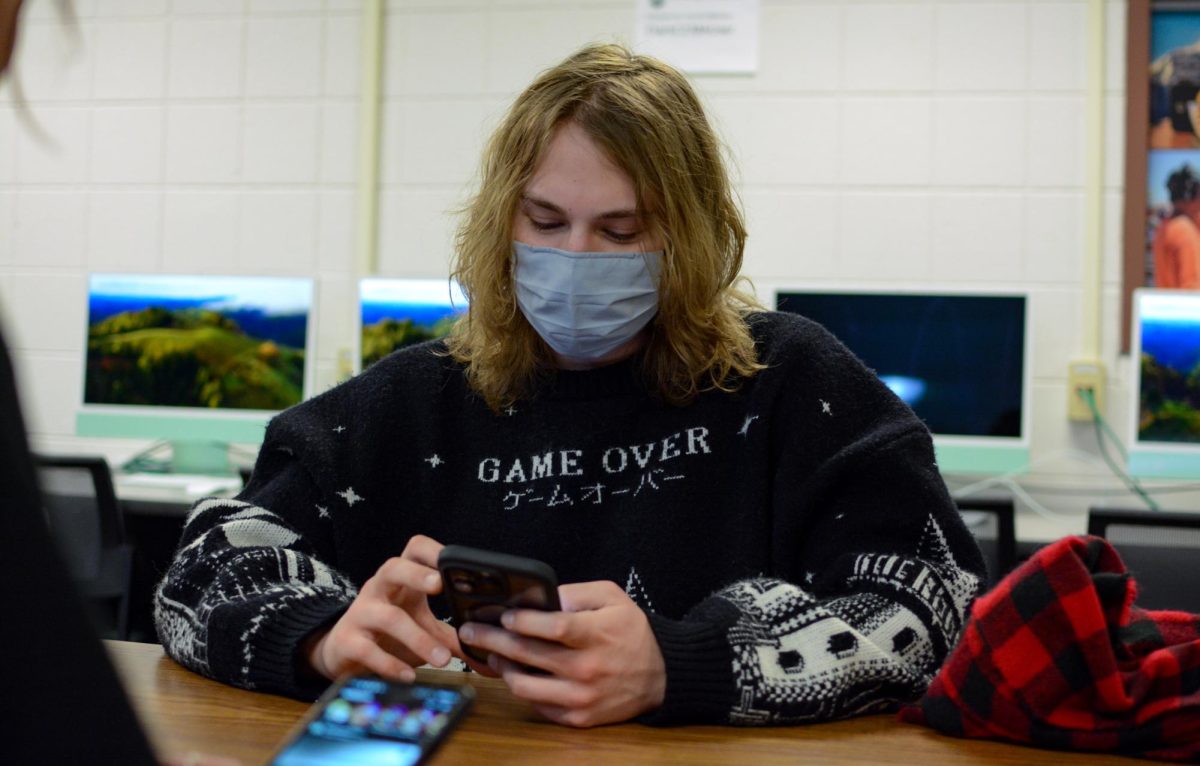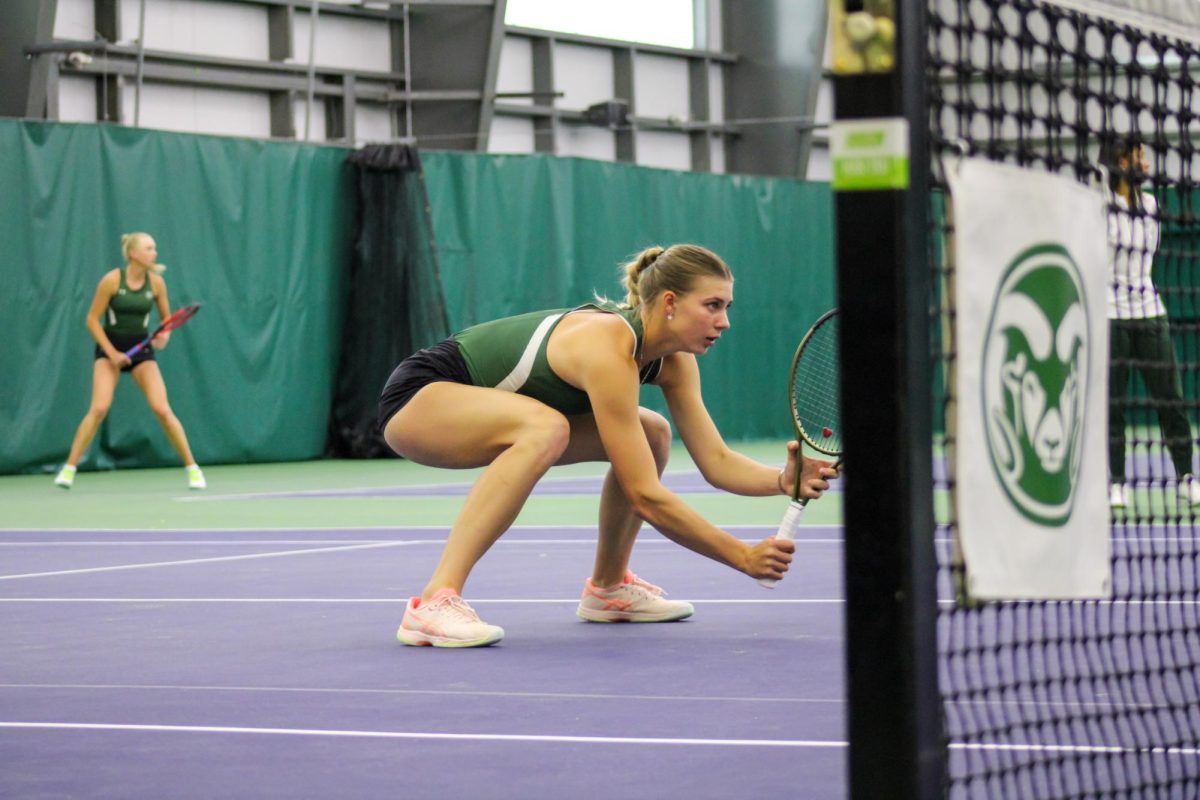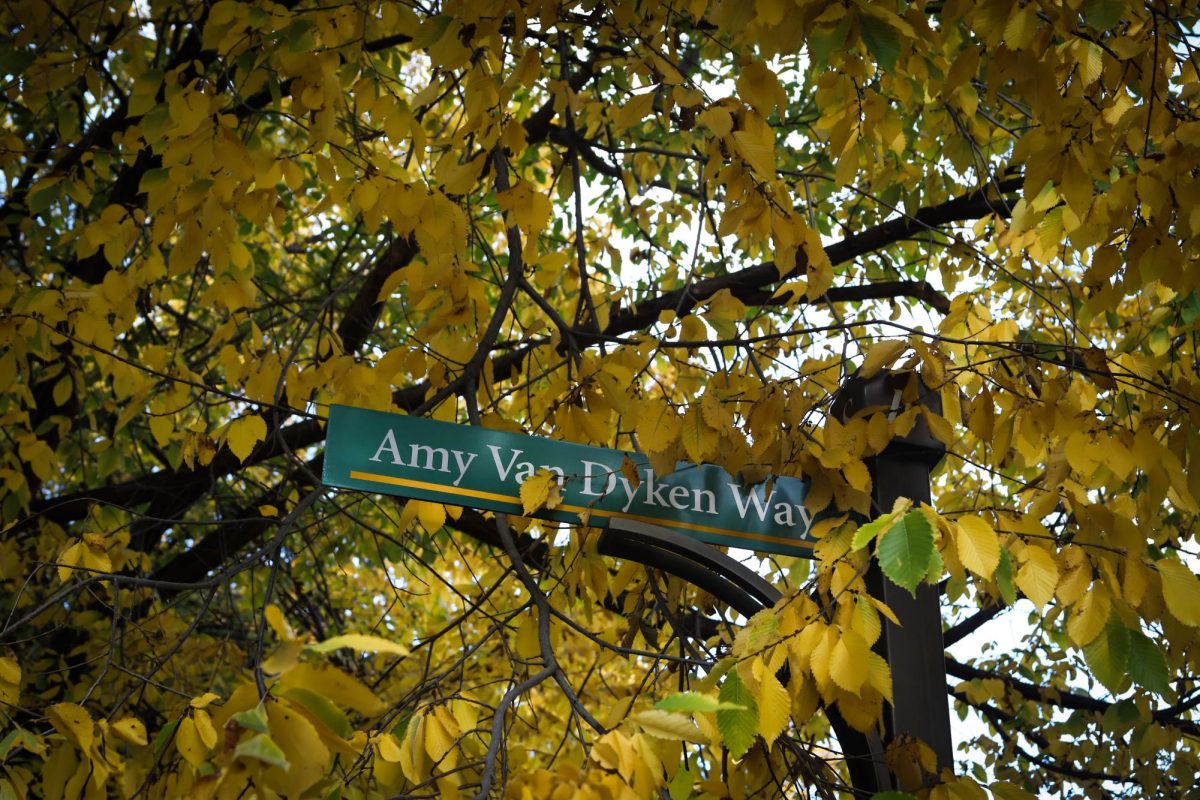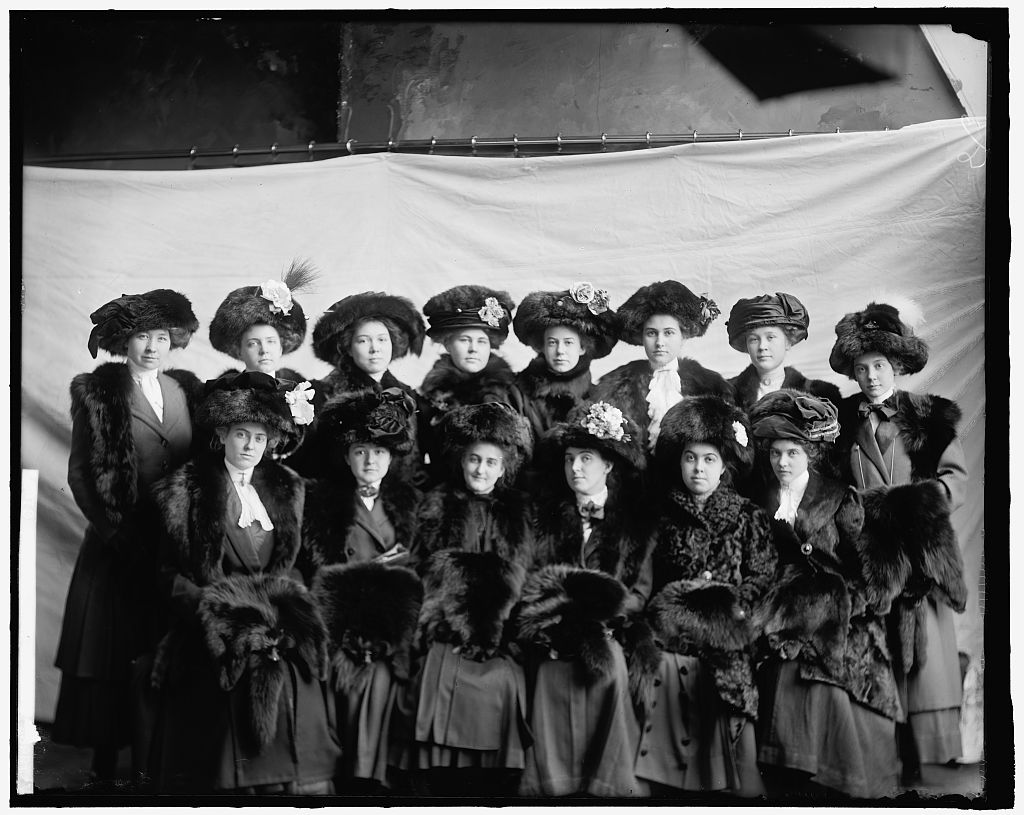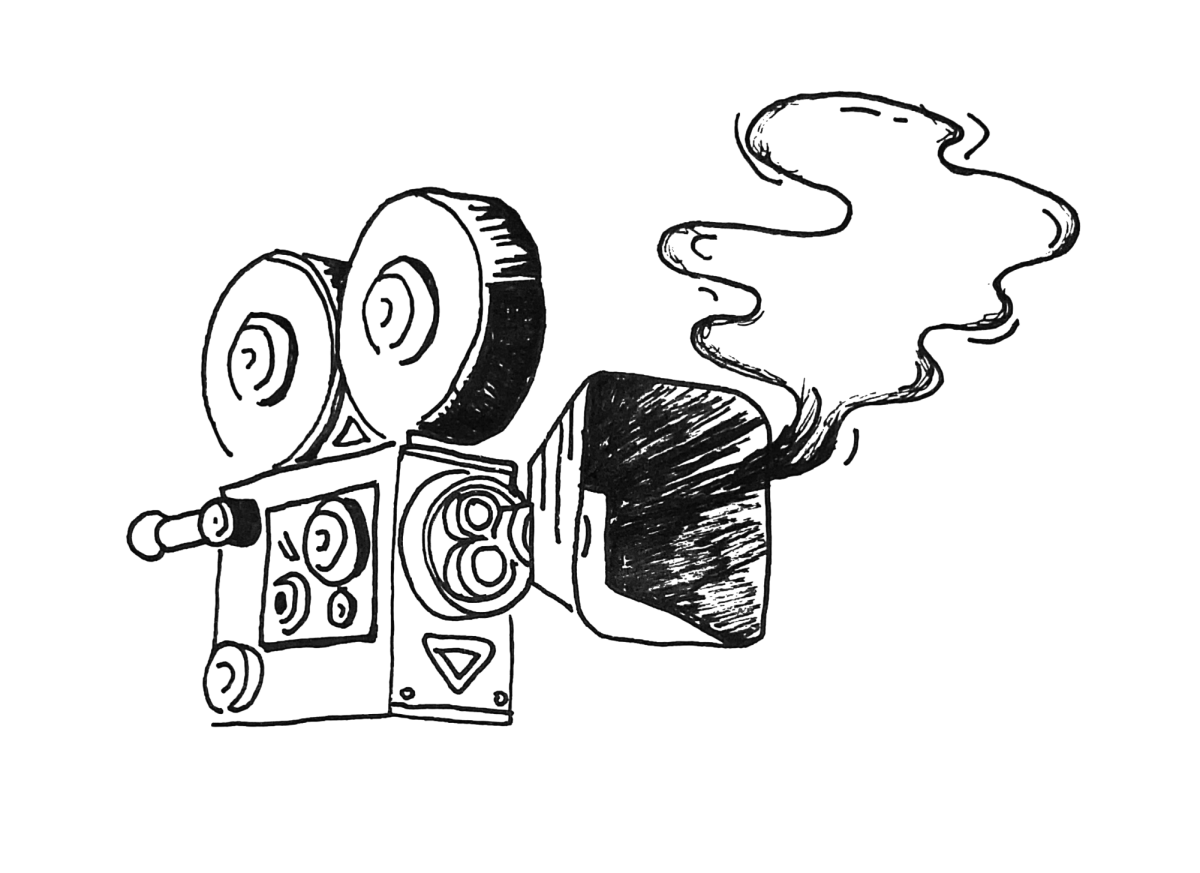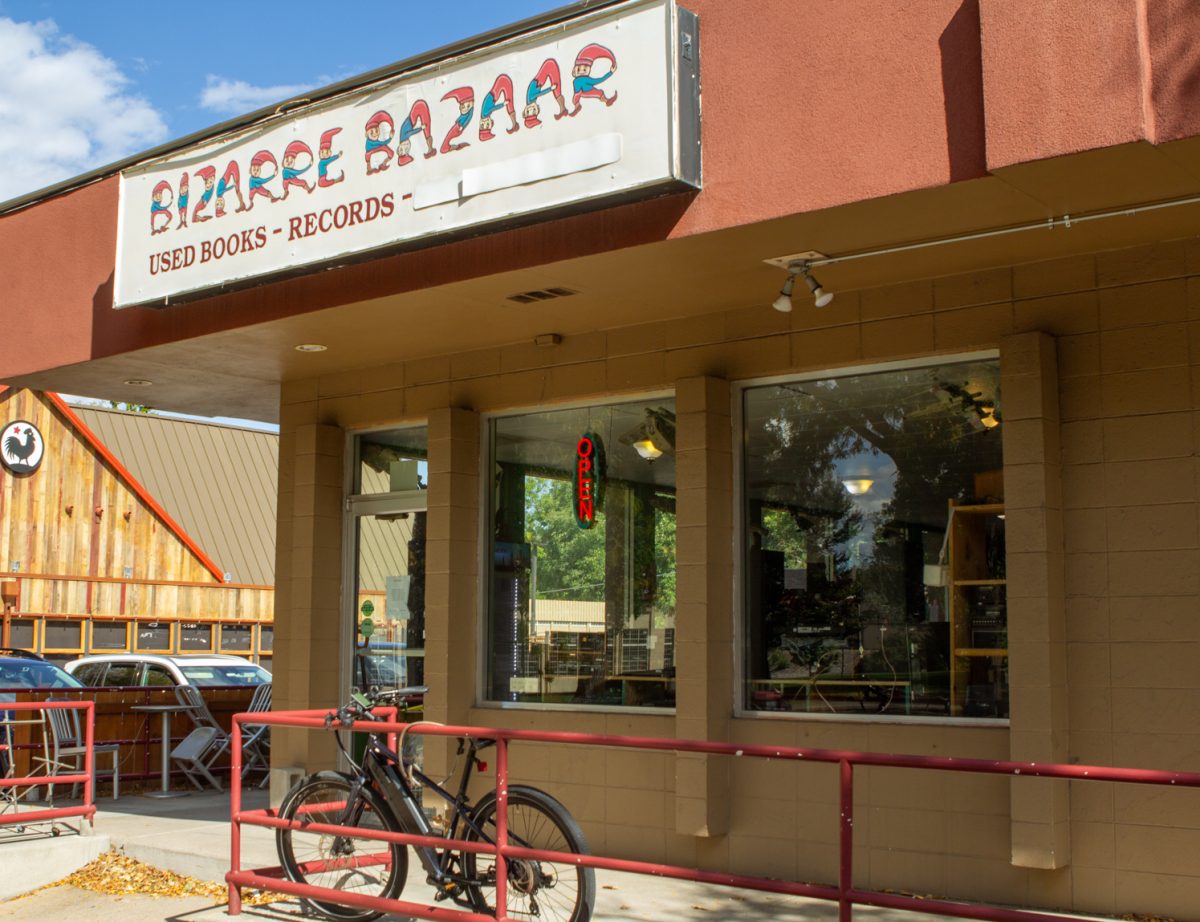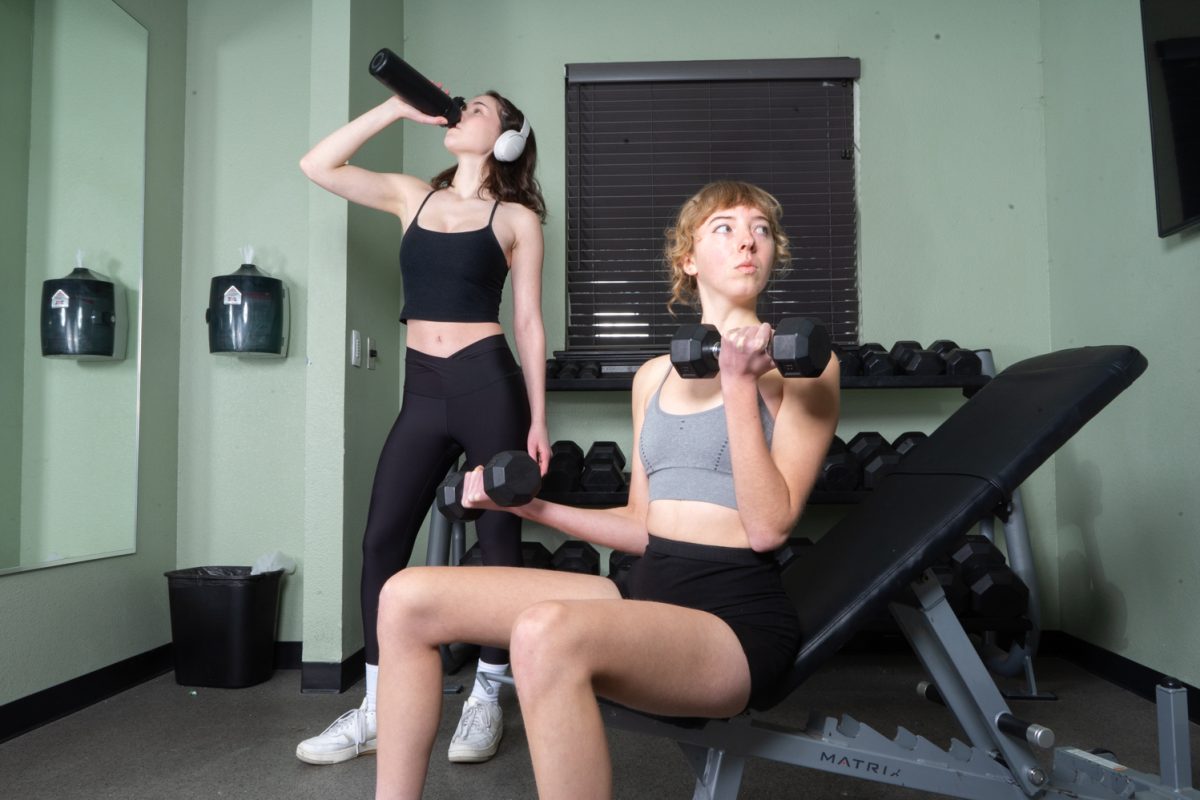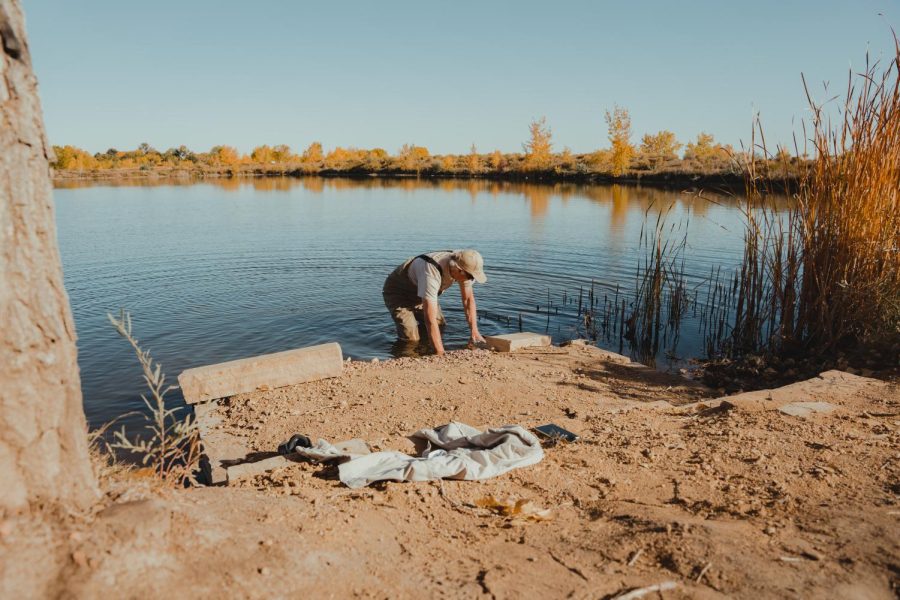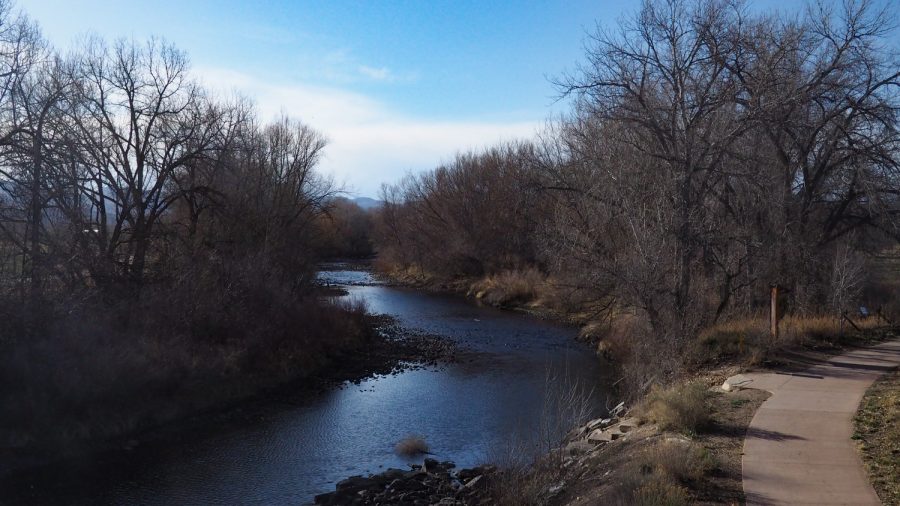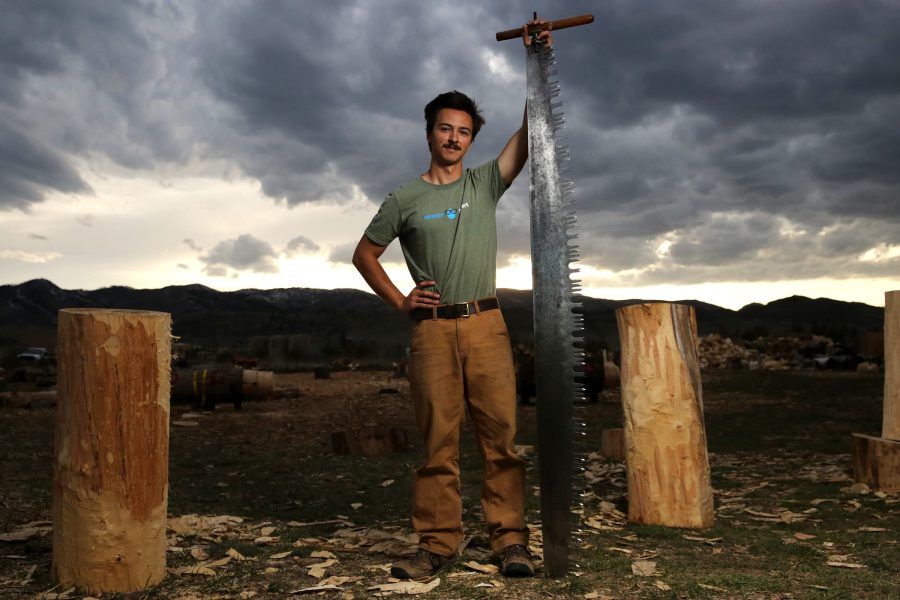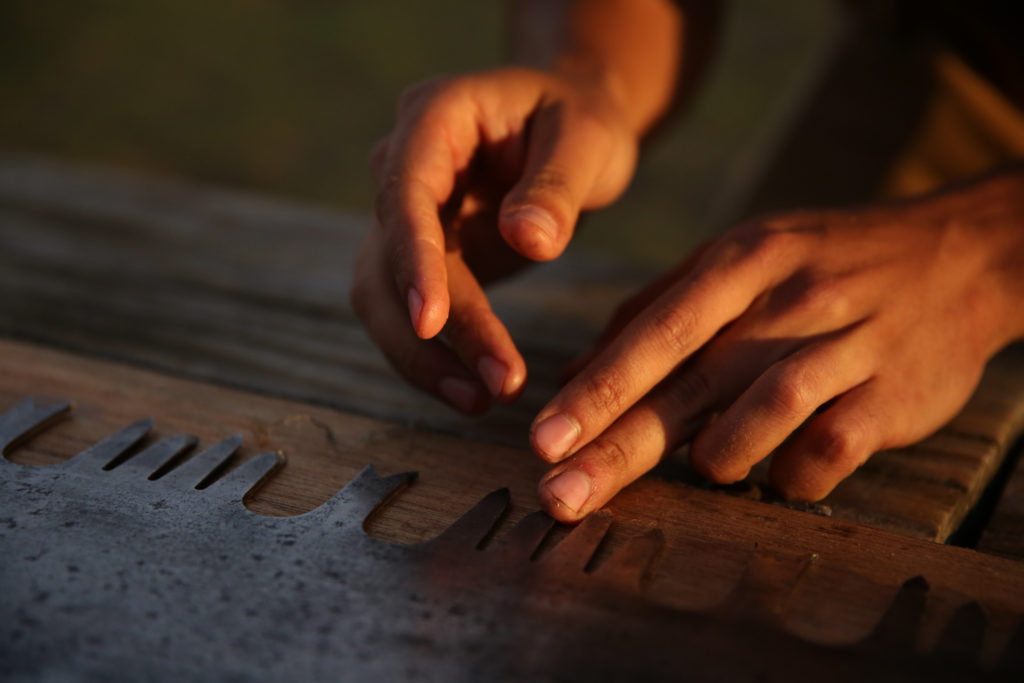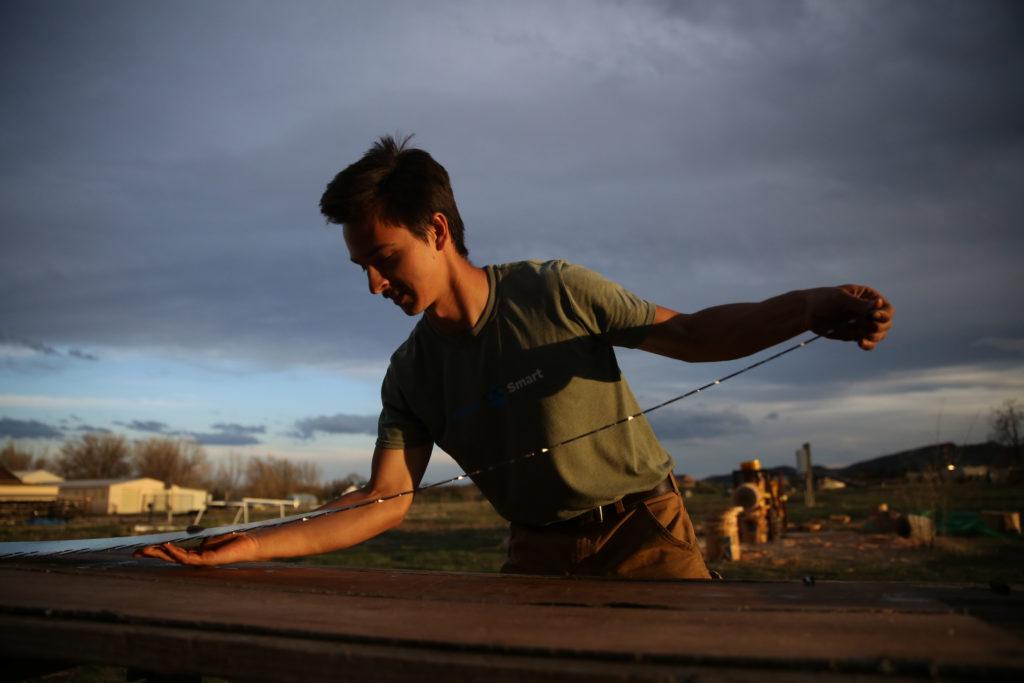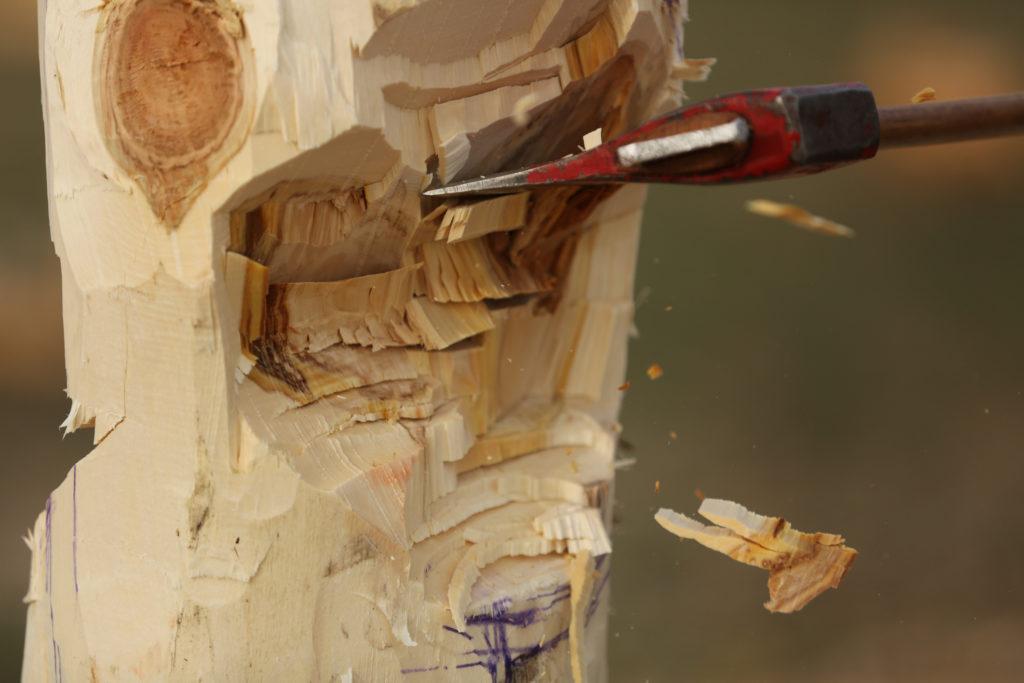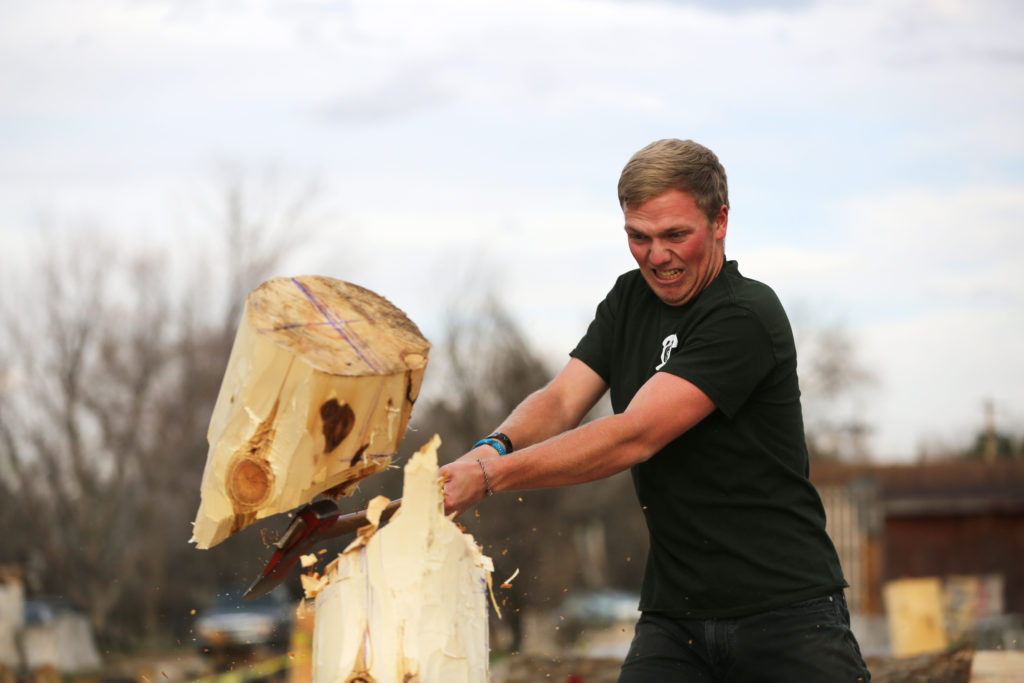By Austin Fleskes
Long have people wondered: If a tree falls in the woods and no one is there to hear it, does it make a sound?
Well, with the Colorado State University Logging Team around that question won’t be worried about; they’ll be there to watch it fall.
The CSU Logging Team is made up of 14 dedicated timbersports competitors who do everything from sawing down logs with a chainsaw to throwing axes across a field.
“It’s a lot of stuff that you don’t really think that you’ll ever get to do in your life, which is part of why I wanted to join, because it’s a very kind of niche sport,” said Parker Allen, vice president of the team. “The (camaraderie) of the team, overall, is one of the best things. I’m here because of the people sitting here right now.”
Allen said that the camaraderie of the team is one of its best aspects; the reason he stuck with the team is because of the people that make it up.
This team has meant so much to me and this experience has shaped me into an entirely new person this year and that has been a very valuable thing for me. I’ve just gotten countless marketable skills from this team and this event.”
-Haley Mondin, CSU Logging Team travel and safety officer
However, Allen explained camaraderie is not the only reason he enjoys the team.
“It’s also fun to play with big toys that my mom is scared of,” Allen added.
The team practices three times a week to be the best they can be in several events that involve chopping, sawing and throwing.
“I really like the intrinsic rewards,” said Will Booth, one of the team officers. “Towards the end, you see a result. You finish something and there is something different because of it, and hopefully that ends up for the better.”
But practice is not all chopped logs and sawing trees. When resources are low, or equipment needs attention, practice becomes equipment maintenance and repair.

Galen Burr, president of the team, explained that elements of practicing and self-improvement are intertwined with each of their club agendas.
“It’s all practice,” Burr said. “Splitting firewood is as much practice as chopping a block. Sharpening a saw is as much practice as running a power saw. Everything we do is some form of practice. And that’s something we try to teach people as well.”
Burr added that even on days when the team does something besides chopping or sawing, like work on their axes, it is a vital part of what they are learning as a part of the team and the sport itself.
“An important part of how you learn and how you develop as a competitor is understanding how your tools work and how all of that works together and where these fundamentals come from,” Burr said. “Because you’re not going to go anywhere if you’ve got an ax that’s wonky or a chainsaw that doesn’t run right.”
The frequent upkeep of equipment is important for the team, as much of the equipment used dates well before the invention of the chainsaw. Regardless of age, Burr said that all equipment deserve special, careful attention.
“There is a reason our axes and our cross-cuts are 100 years old and our chainsaws are 15,” Burr said. “It’s equipment, but if you take care of it, (then) it lasts.”
But, to compete in the sport with the right kind of equipment can prove difficult. Booth explained that the monetary barrier to entry is incredibly high, with equipment ranging from $500 to significantly higher.
“Splitting firewood is as much practice as chopping a block. Sharpening a saw is as much practice as running a power saw. Everything we do is some form of practice. And that’s something we try to teach people as well.”
-Galen Burr, CSU Logging Team President
Since the team does not get a lot of monetary assistance from the University itself, it comes down to the officers and members to get the money needed to compete at the professional level.
This funding comes in several different forms, one of the most notable being the donation of chopped firewood as well as the help from the community.
“A lot of it is through your neighbor helping you out and our funding comes a lot from firewood and people being nice to use,” Allen said.
But, this year, the team got a lot of funding from sponsors, as this was one of the first years that community sponsors were actively sought out.
Amanda James, team treasurer, said she was able to get a generous donation from local companies such as CAT, Wagner rental, Jax and Morgan Rental
“All of these different business donated $800 and more in product or tools and time and timber,” James said. “It was nice to get the community backing us as well.”

With training and funding also comes a greater sense of organization from the team. Since its foundation in the late ‘90s, the group has seen significant growth and improvement in several areas. James said that when she joined it was very disorganized but has improved with the help of past presidents and team members.
“Now, it’s pretty successful. I mean, we just hosted a massive competition,” James said.
The honing of skills and expertise, the increase in money and the growth as an organized team led the CSU logging team to said competition: The American Western Forestry Club’s 80th Annual Timber Sports Conclave.
This three-day event at the end of March brought together competitors from across the United States and Canada to compete in all the most notable timber sports. This event allowed the CSU logging team to test their might against other universities and learn from each other.
“Being able to handle yourself around equipment that can kill you (and) can cut you in half is a big deal.”
— Parker Allen, vice president of the team
With competition brought increased knowledge for the team, especially from conclave judge Alvie Marcellus, who showed the team tips and tricks for the sport
“Some of that information that was going around was one of the most impressive things I have ever seen,” Booth said.
However, it wasn’t just the competition of the event that was influential to those on the team. Haley Mondin, team travel and safety officer, said that she has learned countless skills from the team and the planning of this event.
“This time last year, I think I was a vastly different person because of being on this team and (planning) this event,” Mondin said. “This team has meant so much to me and this experience has shaped me into an entirely new person this year, and that has been a very valuable thing for me. I’ve just gotten countless marketable skills from this team and this event.”

For some, timber sports are something that they hope to continue being a part of even after graduation. Both Burr and Mondin agreed that after graduating. Allen said that he would like to continue some form of the sport, especially if he studies abroad in Australia, where he says timber sports are incredibly popular
“I’d be chopping against 8-year-olds, but I’m going to try that because it’s there, I can do that,” Allen said. “I would love to compete after college, kind of just where life takes me at that point.”
Allen added that a lot of people that come and compete in competitions are firefighters or people that use that type of equipment consistently. Because of this, he said that there are different facets that the sport can take an individual.
While some may believe that this non-traditional sport is something that can only teach one how to quickly saw through a log, the CSU logging team explained that it has given them so much more, even for those that don’t aim to continue competing after graduating college.
Allen explained that the skills gained by working with their equipment can be utilized by anyone going into a job field that includes any sort of dangerous equipment.
“Being able to handle yourself around equipment that can kill you (and) can cut you in half is a big deal,” Allen said. “Any job you have, if it is anywhere dangerous, you are going to get skills on this team to be able to handle equipment that can hurt you, but at the same time you can handle that equipment correctly.”
James said that leadership skills were something she learned on the job, including how to work with all kinds of people from all kinds of backgrounds.
And even though it may seem like it takes a certain type of person to make the cut, Mondin explained that anyone can be a part of the CSU logging team.
“You don’t have to be any kind of anything to be on this team,” Mondin said. “We are here, we will welcome you, we will teach you what you need to know. There are so many different things you can do with this team and get out of this team that you wouldn’t expect.”



